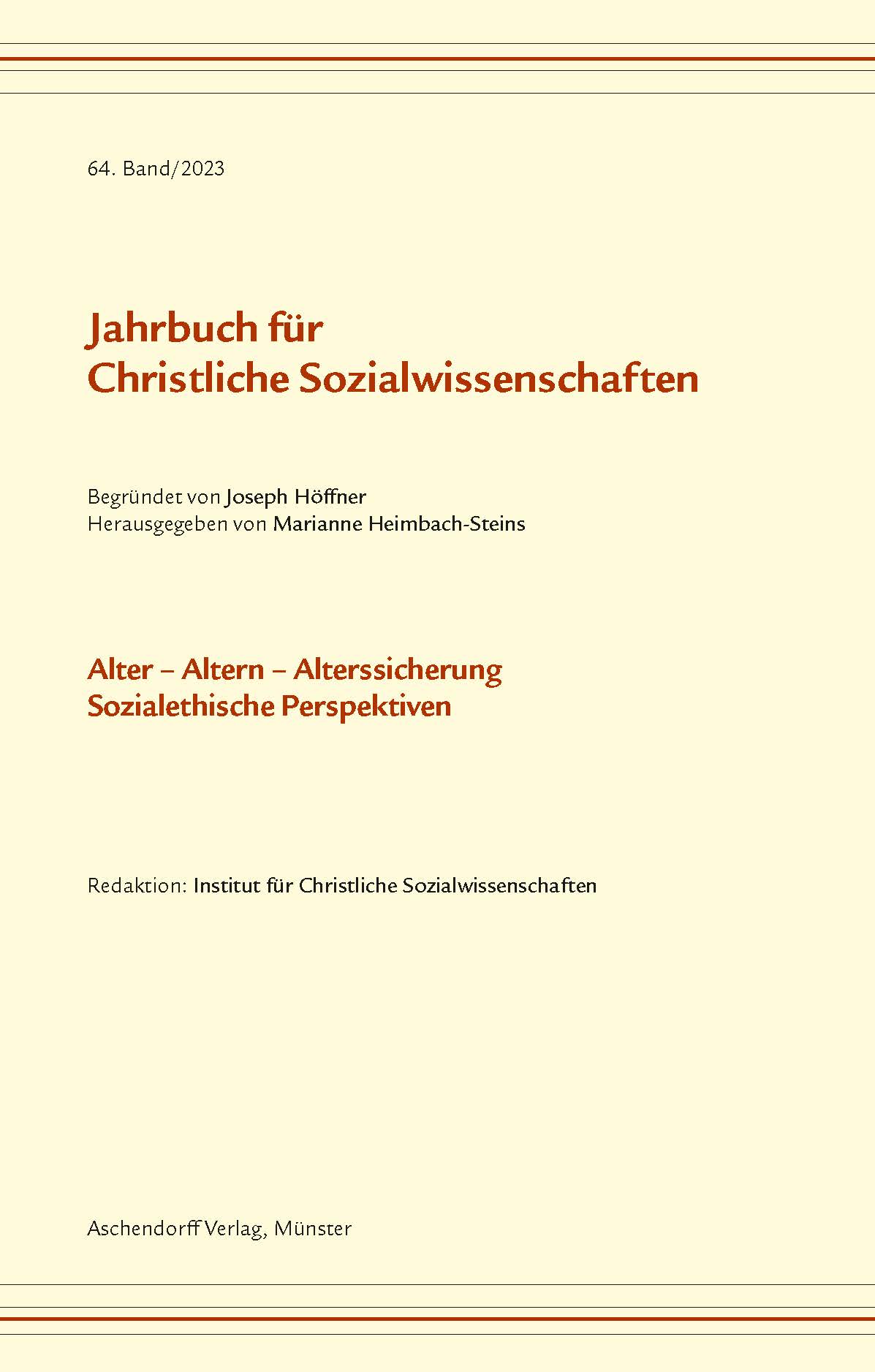Alterssicherung auf gut katholisch
Eine Säule des deutschen Sozialversicherungsstaates und ihre unterschätzten Potenziale
DOI:
https://doi.org/10.17879/jcsw-2023-5062Abstract
This article deals with typically catholic claims and topics of old age pension policy in Germany. The German type of welfare state unfortunately is often called bismarckian, despite the fact, that its foundations since the beginnings are neither state nor market oriented. The pension policy of the German welfare state focusses on social insurance, corporatist self-government, scaled contributions and contribution equivalence. These topics were able to prevail due to the resistance of the catholic center party against the initially authoritarian welfare project of the Bismarck government in the 1880s.
On this background, the article presents two formative phases of German old age pension policy: shortly the 1880er years and more in detail the 1950er years with the ambitious social reform projects of the Adenauer government (Rothenfelser Denkschrift and the so called Schreiber-Plan). Finally, the article takes a look on the present market-oriented upheavals in recent German old age policy since the year 2000 and asks for political perspectives to modernize and to defend some basics of the catholic tradition of pension policy.

